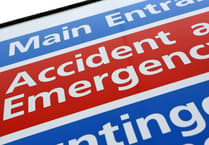Reported thefts and related crimes are unlikely to lead to a prosecution in Hampshire, new figures show.
The figures come as a think tank warns police are under-resourced when it comes to tackling 'low-level' crime.
Theft is one of the most common crimes in England and Wales – but some types of theft are among the least likely to lead to a prosecution.
According to data from the Home Office, just four (0.4%) of 1,026 thefts 'from the person' – which includes pickpocketing and bag-snatching – reported to Hampshire Constabulary in the year to September 2022 resulted in a charge or summons.
There were a further 6,165 thefts 'from a vehicle' over this period, of which 0.8% resulted in a charge.
And across the country, thefts of vehicles themselves also have relatively low rates of prosecution.
Of the 2,629 reports of bicycle theft in Hampshire over the same period, just 24 (0.9%) led to the offender being charged.
There was a slightly higher rate for car theft, with 1.8% of 2,902 cases of 'theft or unauthorised taking of a motor vehicle' prosecuted in the area.
Meanwhile, a mere 15 charges were brought against people in Hampshire for 'making off without payment' – a crime which includes stealing from petrol stations or leaving a restaurant without paying – despite 1,698 crimes being reported in the year to September.
Rick Muir, director of the Police Foundation, said police need greater resources to investigate low-level crime.
“Charge rates have been falling for a number of reasons. This is partly owing to austerity, meaning there have been fewer police officers to do the work,” he said.
“It is also because the mix of crimes that are reported to the police has changed and become more serious and complex,” he added.
Thefts are not the only crime where very few cases result in an appearance in court – despite more than 25,000 cases of blackmail reported in the year to September across England and Wales, 12 forces brought no charges forward at all.
In Hampshire, just two of 975 reports of blackmail were prosecuted over the same period.
Mr Muir added: "The police have had to ration what they do with reduced resources and this has meant they have prioritised high harm, more serious crimes – such as sexual crime, serious violent crime and domestic abuse."
The Crown Prosecution Service and the National Police Chiefs' Council said in a joint statement they want people to "report crime with confidence", in the knowledge their case will be "thoroughly investigated".
“The criminal justice system has seen a period of unprecedented change with the pandemic, pressure on the courts and the significant growth in digital evidence increasing the complexity of cases, we are working together to rise to these challenges and help the charge rate increase,” they added.
A Home Office spokesperson said: “We are working with partners across the Criminal Justice System to increase the number of cases being charged and prosecuted, and reduce the time taken to reach this point – the Home Secretary welcomes the commitment for police attendance at every home burglary.
“We continue to support the police in delivering justice and high-quality outcomes for victims, including through record levels of investment and the recruitment of 20,000 additional officers by March 2023.”



